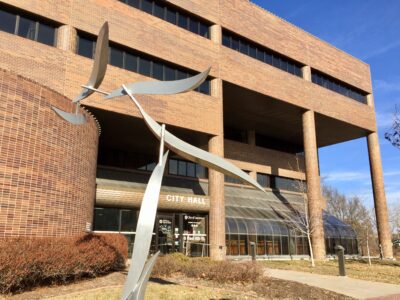City not alone in defending smoking ban
Smoking ban
- 6News Video: Kansas Supreme Court considers the constitutionality of city’s smoking ban (02-23-07)
- Committee postpones action on statewide smoking ban bill (01-31-07)
- Statewide smoking proposal raises ire (01-18-07)
- 6News video: State bill to ban smoking meets opposition (01-03-07)
- Chat about downtown bar concerns with Nick Carroll (01-03-07)
- Smoking ban in Garden City set to begin (12-31-06)
- Checkup finds Kansas healthier (12-06-06)
- Smoking ordinance prompts Parsons bar to go private (11-26-06)
- Clean Air Lawrence member is honored (11-24-06)
- Overland Park passes business smoking ban (11-08-06)
- Smokers welcome – and legal – at shop (09-08-06)
- State court will decide legality of smoking ban (08-29-06)
The city is getting legal help in the Kansas Supreme Court case challenging the constitutionality of the city’s smoking ban.
The League of Kansas Municipalities – the statewide organization that lobbies for issues on behalf of cities – has been allowed to join the lawsuit, said Sandy Jacquot, the league’s general counsel.
Jacquot said the league decided to join the lawsuit as a “friend of the court” because the lawsuit brought by Dennis Steffes, owner of Last Call and Coyotes nightclubs, has the potential to damage city smoking bans and ordinances across the state.
“We believe it would pretty much do away with any kind of smoking ban if the plaintiffs win the case,” Jacquot said.
Jacquot said smoking bans are becoming more of a priority for cities.
“Many of our cities have smoking ordinances, and many more want to have them,” Jacquot said.
Toni Wheeler, the city’s interim director of legal services, said the city welcomes the league joining the case.
“They are very knowledgeable about municipal law,” Wheeler said.
Steffes is arguing that the city’s smoking ban – which began in July 2004 and made it illegal to smoke inside bars, restaurants and virtually all other workplaces – is unconstitutionally vague. He has said the law does not provide sufficient instructions on what business owners are required to do if a person is smoking in their businesses.
Steffes also has argued the Lawrence law illegally supersedes state law. Steffes interprets the state law as only allowing governments to require businesses to provide smoke-free areas but does not allow a city to completely ban smoking within a business.
“I believe the city of Lawrence basically went far above and beyond what it was allowed to do,” said William Rork, the attorney for Steffes. “And the enforcement is very arbitrary and capricious, which makes it unconstitutional.”
The city and the league dispute both arguments. Jacquot said the city has the power to adopt a ban based on its home-rule authority and that the ban is not vague because it puts both businesses and the public on notice about what activities are illegal. Plus, she said the ban cuts to the heart of what cities are empowered to do.
“Cities regulate for the health, safety and welfare of their citizens, and this is a classic example of a city attempting to do that,” Jacquot said.
The Supreme Court has not set a date for the case to be heard, but Wheeler expects oral arguments will begin later this spring.



